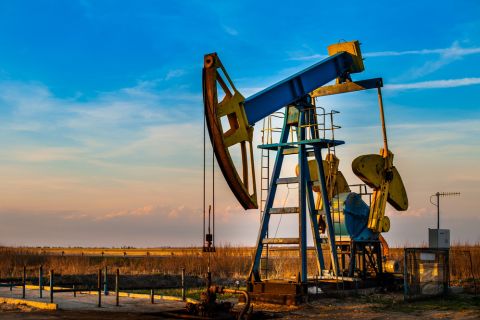
David E. Bull
In May 20, the House Transportation and Infrastructure Committee’s Railroads, Pipelines, and Hazardous Materials Subcommittee held a hearing on “Implementation of the Pipeline Inspection, Protection, Enforcement and Safety Act of 2006 and Reauthorization of the Pipeline Safety Program.” PHMSA Administrator Cynthia L. Quarterman and representatives from the public, industry and contractors were witnesses before the committee, providing both prepared statements and answers to questions.
In her prepared statement, Administrator Quarterman said that the nation’s “pipeline safety record is good” and that serious incidents declined 50% over the past 20 years. Progress in pipeline safety since the PIPES Act includes enforcement programs, Distribution Integrity Management and Control Room Management. PHMSA has increased funding for state programs, and is working to strengthen damage prevention programs in addition to regulatory enhancements to meet PIPES Act mandates.
This hearing came one day after the Transportation and Infrastructure Committee met regarding the Deepwater Horizon spill in the Gulf of Mexico. Not surprisingly, many of the questions for Quarterman referred to this event and PHMSA actions regarding leaks, spill response and oversight of pipelines.
Administrator Quarterman reviewed the PHMSA requirements for emergency and spill response plans. PHMSA inspects these programs and requires changes if needed, and works with operators and others in conducting training exercises.
A telling point made by Chairman Oberstar, referring to the previous hearing, was that many regulatory agencies consider the industry they regulate to be “the customer.” The Administrator replied that “the PHMSA customer is the American public.”
Committee members questioned why PHMSA has only 104 inspectors, yet the PIPES Act authorized 135. The focus was on the ability of PHMSA to carry out its mission while not fully staffed. The reply was that PHMSA has an active recruiting program, and that filling these vacancies is a top goal of the Administrator. Partnership with the states assists in meeting regulatory responsibilities.
This led to questions on funding for state programs. Allocations to states are based amounts spent on pipeline safety. Many states have budgetary issues at this time, so programs are not expanding. In some cases, states are even facing spending constraints. PHMSA suspended some requirements to allow funding for 2009 programs to exceed 50% rather than decrease, and NAPSR is requesting for this to continue. The committee members were in consensus that funding, both at federal and state levels, is critical to the program.
The 811 number and damage prevention programs were praised as having positive effects on reducing excavation damage. Witnesses were in agreement that various state exemptions for municipalities, state DOTs, railroads and others should be eliminated. Damage prevention requires all facility owners to participate to further reduce excavation damages.
The PIPES Act authorized federal action relating state damage prevention programs if they do not meet certain criteria. The point was raised that three years after the legislation, PHMSA still does not have a program for regulation or enforcement at the state level. Quarterman responded that PHMSA has been working with the states to modify their laws, rather than force federal regulation.
Testimony at this hearing reviewed numerous major pipeline safety initiatives that were implemented since the Pipeline Safety Improvement Act of 2002 and the PIPES Act of 2006. Transmission integrity management is well underway, Public Awareness Programs are just coming up on their first evaluations, damage prevention strategies and 811 are working well to lower excavation damage. DIMP and Control Room Management are in the beginning throes of implementation, and there is much work ahead. Time is needed to complete and evaluate all these programs before adding new regulations to the mix. A simple, straightforward reauthorization was recommended.
David Bull is manager of ViaData LP, publisher of WinDOT, The Pipeline Safety Encyclopedia.
Recommended Reading
Texas LNG Export Plant Signs Additional Offtake Deal With EQT
2024-04-23 - Glenfarne Group LLC's proposed Texas LNG export plant in Brownsville has signed an additional tolling agreement with EQT Corp. to provide natural gas liquefaction services of an additional 1.5 mtpa over 20 years.
US Refiners to Face Tighter Heavy Spreads this Summer TPH
2024-04-22 - Tudor, Pickering, Holt and Co. (TPH) expects fairly tight heavy crude discounts in the U.S. this summer and beyond owing to lower imports of Canadian, Mexican and Venezuelan crudes.
What's Affecting Oil Prices This Week? (April 22, 2024)
2024-04-22 - Stratas Advisors predict that despite geopolitical tensions, the oil supply will not be disrupted, even with the U.S. House of Representatives inserting sanctions on Iran’s oil exports.
Association: Monthly Texas Upstream Jobs Show Most Growth in Decade
2024-04-22 - Since the COVID-19 pandemic, the oil and gas industry has added 39,500 upstream jobs in Texas, with take home pay averaging $124,000 in 2023.
What's Affecting Oil Prices This Week? (Feb. 5, 2024)
2024-02-05 - Stratas Advisors says the U.S.’ response (so far) to the recent attack on U.S. troops has been measured without direct confrontation of Iran, which reduces the possibility of oil flows being disrupted.




